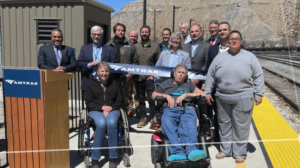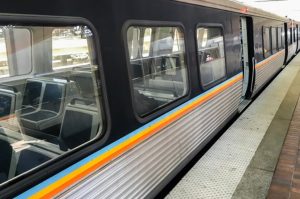SEPTA unveils new capital improvement plan
Written by Jenifer Nunez, assistant editorSoutheastern Pennsylvania Transportation Authority (SEPTA) presented a new capital improvement plan for addressing some of the transit system's most pressing needs, including critical infrastructure upgrades and equipment replacement.
The plan, called “Catching Up,” comes less than a month after the state approved a new comprehensive transportation funding bill, which will allow SEPTA to significantly bolster its short- and long-term capital improvement program.
The work outlined in the plan will address issues that were highlighted earlier this year when SEPTA released its Service Realignment Plan, which laid out a number of measures to significantly shrink the transit system if new funding was not made available for critical, long-needed improvements.
Now, SEPTA is focused on getting to work on some of its most vital needs to ensure the continuation of safe, reliable service for customers. Timelines for specific projects will be announced starting next year, following the completion of engineering and design phases.
Work SEPTA expects to embark on in the coming years includes, but is not limited to: upgrading several viaducts on the Media/Elwyn Regional Rail Line by replacing aging bridge timbers, work that if left undone, would force the shutdown of this heavily-traveled route; replacing aging rail vehicles that are well past their useful service lives; rehabilitating and/or replacing vital rail bridges; rehabilitating and/or replacing power substations that date back to at least the 1930s; renewing track on trolley routes and the Norristown High Speed Line and strategically expand parking to address regional rail ridership growth.
“These are the type of core infrastructure projects that are essential to the everyday operation of the SEPTA system,” said SEPTA General Manager Joseph Casey. “The new transportation funding bill is a game-changer for SEPTA, its riders and transportation in the region as a whole.”
SEPTA will begin to receive additional state funding provided under the bill beginning next year, with the amounts growing gradually until full funding levels are achieved in approximately five years. At that time, SEPTA projects its annual Capital Budget to exceed $600 million, or more than double the $300 million annual amount SEPTA has had available for capital improvement projects in each of the past several years.





